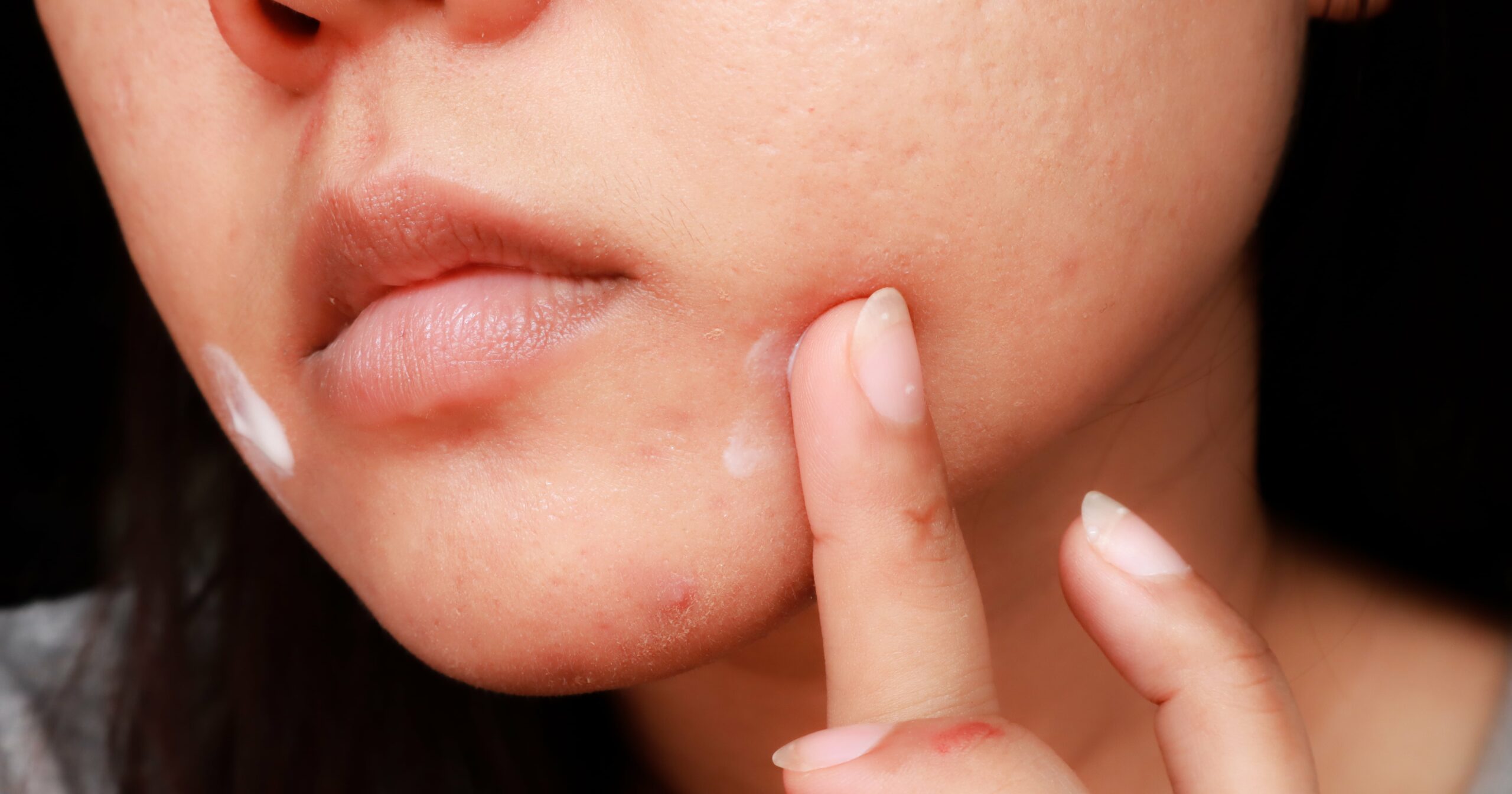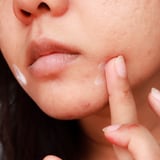When it comes to over-the-counter acne treatments, there tends to be two widely celebrated skin-care ingredients: benzoyl peroxide and salicylic acid. While salicylic acid is fairly well-known and understood, its acne-fighting counterpart benzoyl peroxide shouldn’t be underestimated. The thing is, benzoyl peroxide is already utilized in a ton of skin-care products, from cleansers to spot treatments – you just may not know you’re using it.
But what is benzoyl peroxide, and what are benzoyl peroxide’s uses? It’s not magic, but it’s pretty close. While it may be tempting to combine the powers of benzoyl peroxide with salicylic acid, the two treat acne differently. To help you understand more about the ingredient and how to use it to help with breakouts, two dermatologists are breaking down everything you need to know.
What Is Benzoyl Peroxide?
Unlike salicylic acid, which exfoliates dead skin cells to help treat and prevent breakouts, benzoyl peroxide attacks acne-causing bacteria in your pores to do the job. It can be found in over-the-counter formulations and prescriptions.
“Benzoyl peroxide is highly lipophilic, which allows the molecules to penetrate the skin surface and target the hair follicle,” Ted Lain, MD, board-certified dermatologist and chief medical officer at Sanova Dermatology, tells POPSUGAR. Its primary benefit is not exfoliation, but it does help with that as a secondary gain.
Benzoyl Peroxide For Acne
This ingredient works best on acne caused by bacteria like inflammatory pimples, which include pustules, papules, nodules, and cysts. Dr. Lain explained it’s “those with predominantly pus bumps and pimples.” With that in mind, it’s not the preferred ingredient for treating blackheads and whiteheads. Those with sensitive or dry skin should also be careful using benzoyl peroxide as it can aggravate skin.
Benzoyl peroxide is a powerful ingredient, and while it’s effective at treating mild to moderate acne cases, you should check with your dermatologist first before incorporating it into your skin-care routine. “It doesn’t only kill p.acnes bacteria, it also kills good bacteria,” says Dennis Gross, MD, board-certified dermatologist and founder of Dr. Dennis Gross Skincare. “Benzoyl peroxide is a free radical and actually damages skin while it clears acne. That means it injures normal skin cells and can create dryness, redness, and irritation.”
In general, overdoing it with any active ingredient, including benzoyl peroxide, can damage the skin’s barrier. “When you strip the skin’s moisture barrier, you can actually make breakouts worse,” Dr. Gross says. If you’re unsure if benzoyl peroxide is a good ingredient for you to use, consult with a skin-care expert like a dermatologist, and always start slow and do a patch test.



